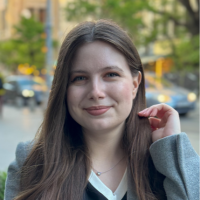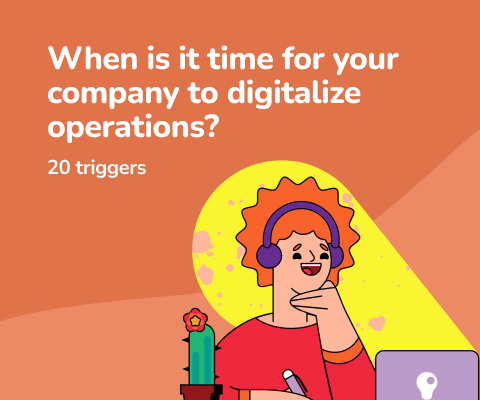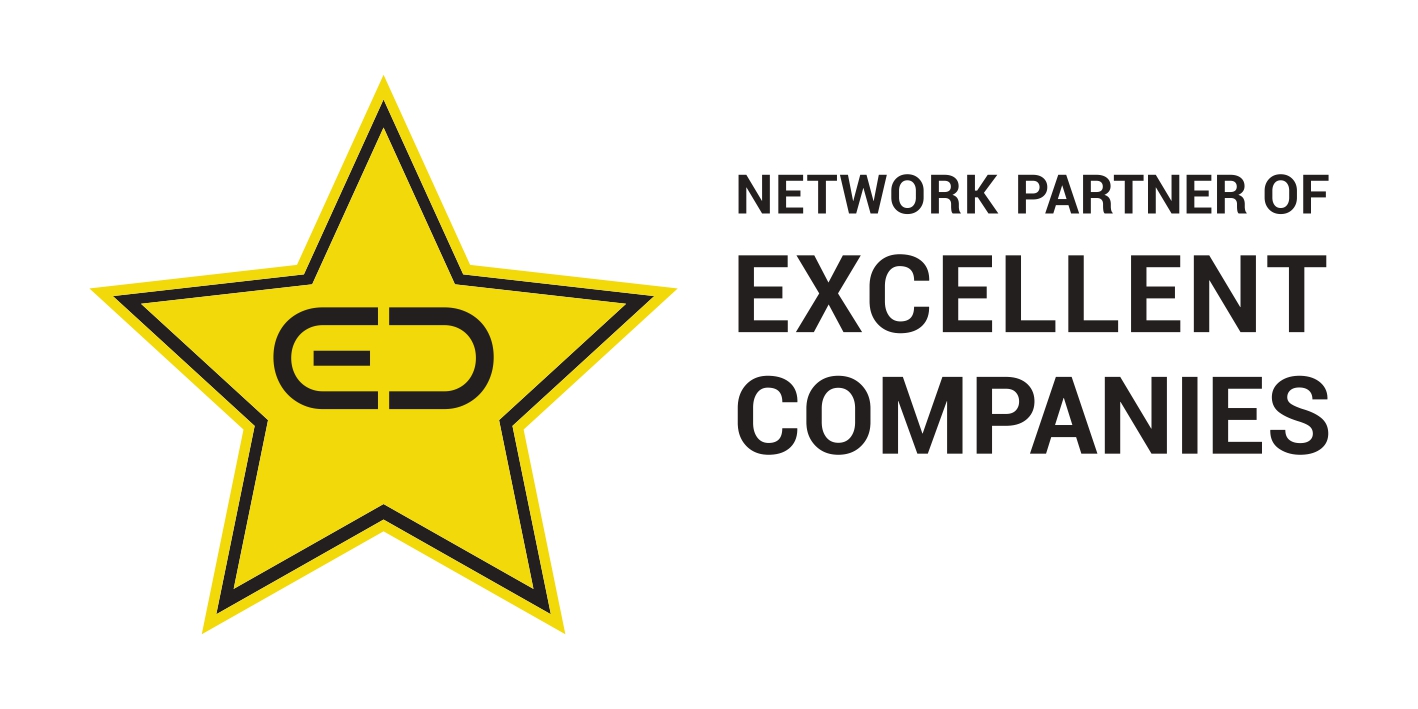February 11th, 2026, posted in for_founders
by Miruna
There are people making waves everyday in the field of technology. Our "Behind the Tech'' series is where we explore the stories of these amazing people. We aim to shed light on their challenges, victories, and invaluable lessons learned. Plus, this is a great way to encourage connections between technology creators and the community.
Join us as we discover the fascinating world behind the tech that shapes our world!
Adrian Ion is a technology leader and CTO. His focus is on high-speed & high-growth businesses in environments with large B2B customers in the EU and US, as well as services to product revenue transformations. Adrian’s passion is nurturing highly engaged teams and individuals.

Adrian is CTO at Partium, a proprietary AI search technology that reduces part search times in technical environments from 15 minutes to 15 seconds.
1. Who is Adrian? Tell us a bit about your previous experience. What makes you successful in your job?
Adrian: Obsession, optimism, sweat, and the right amount of luck!
Until I was around 14, my dream was to become a long-haul truck driver. Then I switched to computers, and I have stayed with that since.
I switched because I had discovered I was good at it, which motivated me. To this day, it's still the same: identify a challenge and obsess about it. This results in focus, invested time and effort, in some cases, success, and in all cases, learning. I believe the recipe applies generally.
At a later stage, I was exposed to neuroscientists, philosophers, and psychologists. This made me obsess about the why in humans.
Then, around a decade ago, I wanted to understand the non-tech part of the world around me, e.g., the company. I'm still obsessing about this.
Understanding is key: understand your colleagues, understand the business, and understand the technology.
2. What professional accomplishment are you most proud of? Why?
Adrian: „My students are my teachers; my teachers are my students." [Georg Gottlob]
As a CTO, being a key contributor to transforming Partium (formerly Humai) from a project to a product company using software and AI and making it the player it is today.
As a colleague, building authentic and trusting relationships. Then having the intuition to put 100% of my trust in those people.
As a nerd, having written kernel-mode code more than 20 years ago, which AFAIK is still in use today.
3. What are some of your biggest tech challenges? How do they impact the business?
Adrian: The good: the hype in AI. The bad: the hype in AI. The ugly: the best AI won't do anything without the right data, so you need an AI for the data too.
Other than that, it's business as usual: everything can be built, but can we have it yesterday, and at half the cost?
4. Do you have any examples of a technological change that you have implemented within an organization? What was the outcome?
Adrian: Disclaimer: As CTO, I'm driving and being responsible for initiatives, but the credit for implementing them goes to the teams.
In the area of AI-enabled technology: 1st generation, old-school image processing; 2nd generation, modern machine-learning-based computer vision; 3rd generation, fancy deep learning.
In software development: 60x increase in production deployment frequency over one year.
Customer-specific: we hot-swapped the entire recognition technology for our largest US customer without any performance disruption.
Earlier, as an engineer, I drove and implemented a major upgrade (+12 years) to the tech stack and the build system of the product core.
5. What was a major people management challenge? How did you solve it?
Adrian: When we grew and our tech teams became too large, our engineering managers became constantly busy with passing requirements, results, and coordinating work. This got them disconnected from the tech. We learned we have to break up the teams to a size where the EMs would be at least 50% contributing and hence hands-on with the tech. A reduction in team size may feel like a demotion to some, and it's not easy to keep everyone. Nowadays, the two-pizza team is a well-established concept; back then, it wasn't.
A merger is a huge opportunity but also a challenge; you need to reorganize and you want to keep the people. After our three-way merger, we wanted to have everyone (AT, ES, and USA) work as closely as possible. We've learned e.g, the same or similar time zone is key.
6. How do you measure your department’s success? What metrics do you have to make sure you are on the right path?
Adrian: This is a very important question with no easy answer, at least not in software development.
The real deal: business impact/cost.
There are various KPIs that can get gamified in a negative way: stories per sprint, tasks per sprint, number of deployments, test coverage, etc.
One could work with combinations, e.g., tasks per sprint/reported issues, to help balance. What works well is also to monitor them individually and then continuously adjust course depending on the situation, e.g., deciding on a minimum quota of mid- and high-level issues added to a sprint. One can also have policies like: critical is breaking, high is this sprint, medium in the quarter, etc.
If different teams are responsible for different aspects and have competing KPIs, e.g., development has the number of released features, and operation has downtime, they may block each other, leading to increased friction. This is solved by joint responsibilities, other KPIs, or targets, like in the example with the issues in the sprint.
Security is key nowadays; here, nightly reports following automated scans have proven useful.
7. Are there any resources (book, podcast, etc) you’d recommend to a junior?
Adrian: I assume the junior is a junior software developer growing to a medior.
Foundations: I'm old-school and believe the algorithms and data structures course to be essential. Introduction to Algorithms by Cormen et. al. is a good one.
In general, I'd say, at this stage, go deep instead of wide and focus on mastering one stack in your area (BE or FE), whatever the stack you are using at the company. Aim to become an expert in that. If available, look into the sources of the standard frameworks and understand what's happening behind the scenes.
Being a medior (or senior) is more than just about programming, especially in the current world of empowering people all around the entire organization. Understand how the team works and why. The why is especially important because it makes up for the difference between what you'll find in books about, e.g., Scrum, Project Management, and Product Management, and the reality at your company.
Find a mentor; at this stage, ideally a medior or a fresh senior, not higher.
8. With technology constantly evolving, what trends are you most excited about, and how are you preparing for them?
Adrian: I wonder how fast things will continue to move with AI; the previous year was crazy. It's not just technology, but society and people all around us. With some respect, it's not fast enough; with others, it's too fast already (adoption, policies, safety, security, etc.).
Another one is remote everything ;-). Remote assistance, remote medicine, etc., given the continuous increase in bandwidth and the lack of on-site experts.
And then there is AI and its breakthrough in the way we program. I'd like something J.A.R.V.I.S. style, at least for the basic components.
Meanwhile, if the basic tasks get more and more automated and only the complex ones require humans, I wonder how we will solve the learning process since doing the hard things requires experience with the easy things first.
Adrian’s story is proof that passion, determination, and focusing on your goals can help you achieve anything you put your mind to. Helping team members grow and work more efficiently helps teams overall in the long run, and being open to the fast movements in technology can keep one’s passion alive even after many years of working in the same field.
We hope you've enjoyed exploring the world of tech leadership as we come to an end of this awesome conversation with Adrian.
Don't miss out on the insights – keep an eye on our blog for the next “Behind the Tech” interview!

















